Understanding the Complexities of Grief in Elderly Populations
Losing a spouse or close friend can profoundly impact seniors, often triggering a complex, multi-dimensional grieving process. As individuals age, the experience of grief may be intensified by factors such as physical health challenges, social isolation, and the monumental change in daily routines. Recognizing that grief manifests uniquely in each senior is essential for providing effective support and fostering resilient recovery. This article explores comprehensive approaches to grief counseling tailored for seniors in senior communities, emphasizing emotional, social, and therapeutic strategies designed to support healing.
The Emotional Journey: What Seniors Face After Loss
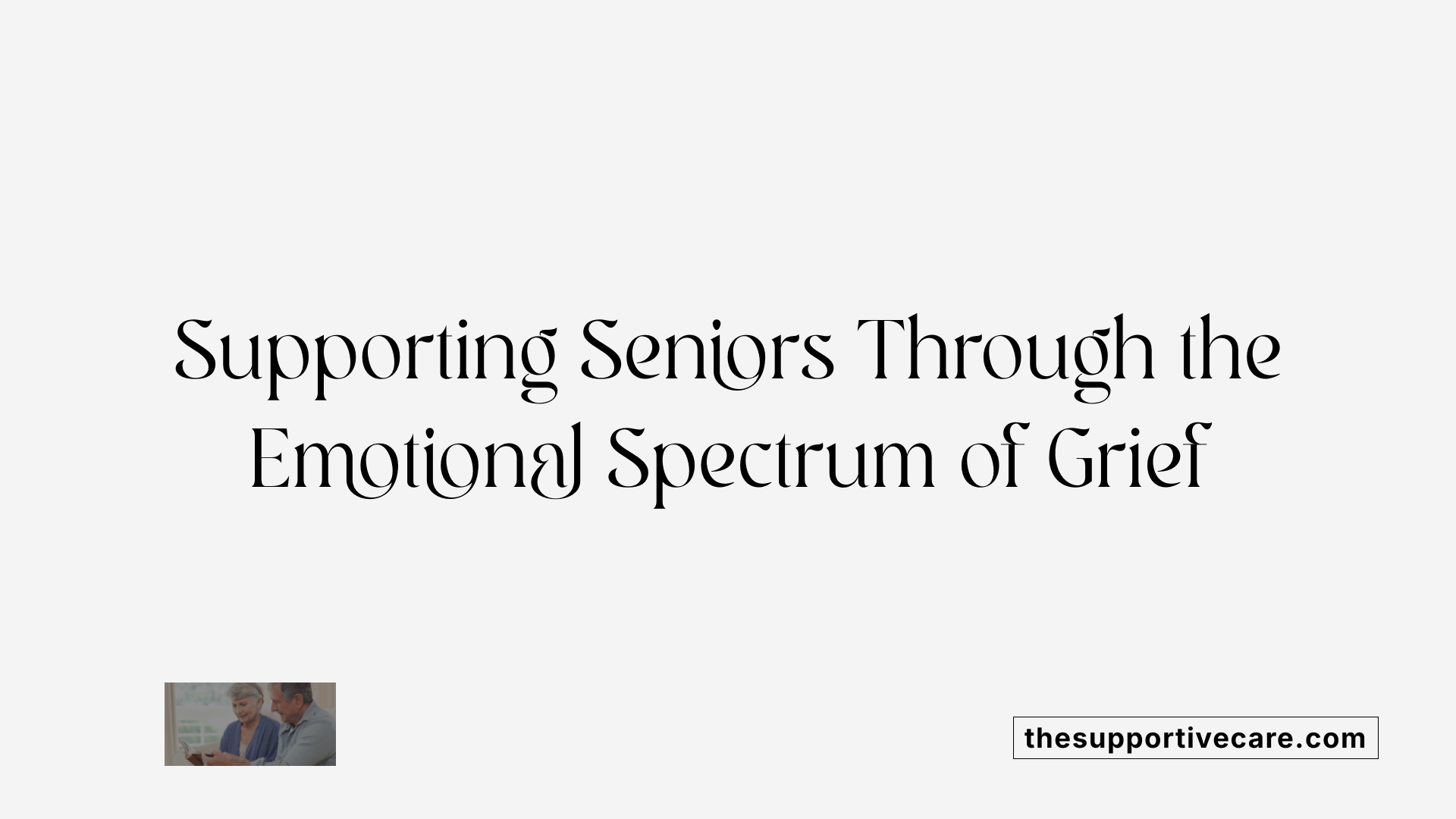
What are the typical grief experiences and emotional stages faced by seniors after losing a spouse or friend?
When a senior experiences the loss of a loved one, their emotional journey is often marked by several recognizable stages. These include denial, where the reality of the loss feels unreal; anger, which may stem from feelings of injustice or confusion; bargaining, as they might wish to reverse the situation or hold onto memories; depression, characterized by deep sadness, exhaustion, and feelings of hopelessness; and finally, acceptance, where they begin to come to terms with their new reality.
However, these stages do not necessarily follow a strict order or timeframe. Every individual’s response to grief is unique, shaped by their personality, social support, and the circumstances of the loss.
During this process, seniors often experience intense emotional reactions such as profound sadness, loneliness, guilt for unresolved issues or feelings of guilt about the loss, and anxiety about the future. Physical symptoms are common, including sleep disturbances, changes in appetite, and fluctuations in energy levels.
Grief can sometimes lead to disorganization in daily routines or temporary difficulties with concentration and decision-making. In some cases, these reactions can develop into what is known as complicated grief, especially if the mourning prolongs beyond normal limits or worsens over time.
Social isolation and existing health challenges may intensify these emotional struggles, highlighting the importance of community and professional support. Engaging in grief support groups, therapy, or spiritual practices can help seniors process their emotions and gradually find a new sense of normal.
Overall, the emotional experience of grief in seniors covers a broad spectrum of feelings and responses. Recognizing these reactions as natural and temporary parts of healing encourages a compassionate approach to supporting grieving elders.
A Spectrum of Support Options Available to Seniors
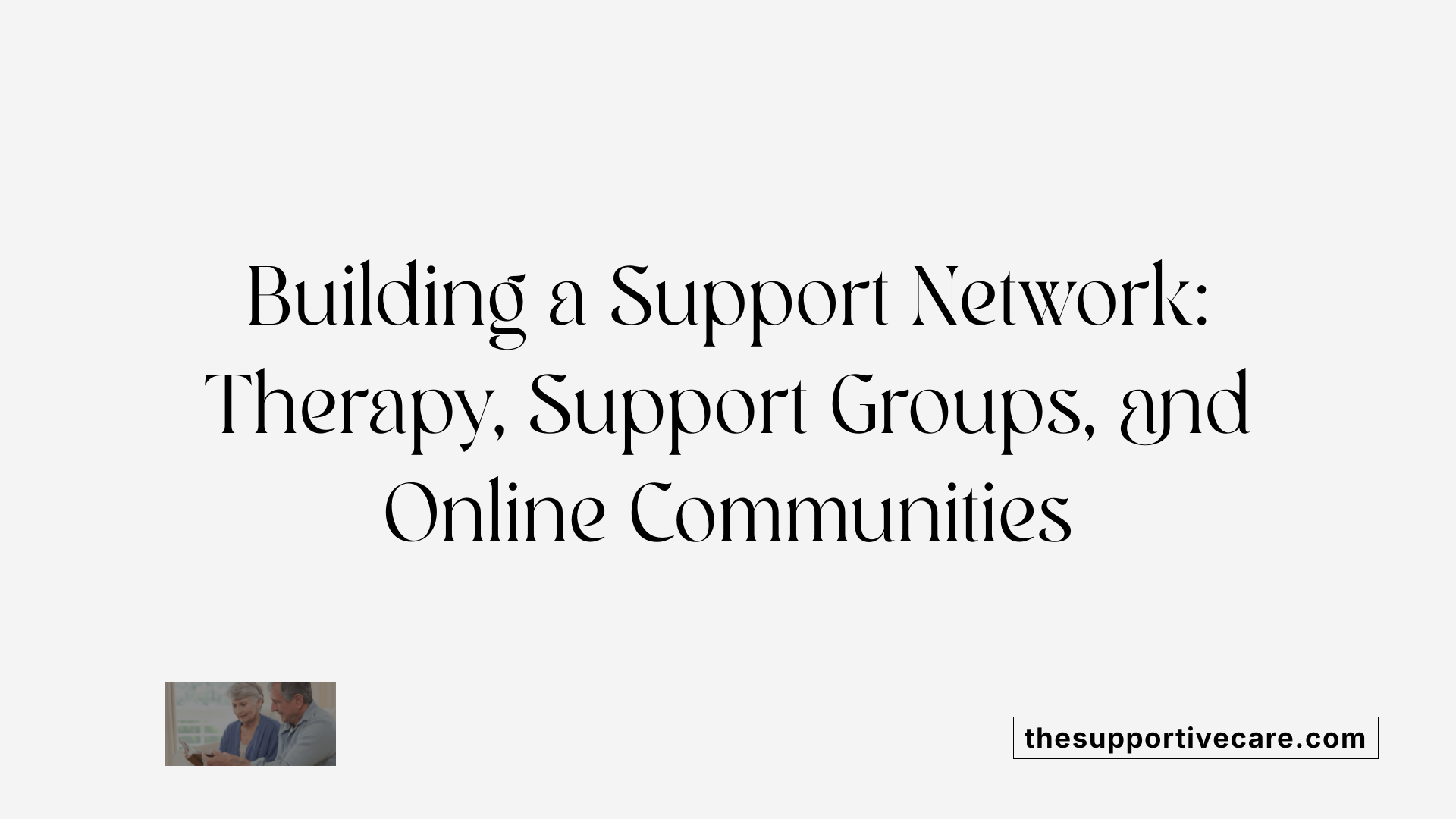
What counseling and support options are available to help seniors cope with grief?
Seniors facing the challenges of grief have access to a wide range of support systems tailored to their emotional needs. Individual therapy is often recommended, providing personalized guidance through feelings of loss, loneliness, and adjustment. Licensed counselors and therapists specialized in grief can offer coping strategies, help process complex emotions, and foster healing.
Support groups are another vital resource. These groups create a safe environment where seniors can share their experiences and find comfort in knowing others understand their journey. Many groups are specifically designed for those who have lost a spouse, partner, or close friend. Some groups are held in person at community centers, senior centers, or religious organizations; others are available online, offering flexibility for those with mobility issues or who prefer virtual engagement.
Community organizations like senior centers, faith-based groups, and hospice care providers frequently offer grief counseling programs and educational workshops. These activities help seniors develop healthy coping skills and connect with others who are grieving.
Online platforms increasingly serve as accessible options for seniors to seek support from home. Virtual therapy sessions and online support groups allow participants to engage in discussions, receive guidance, and find community without the need for travel. Agencies such as the Los Angeles County Department of Mental Health and local centers like the Senior Friendship Center also provide specialized bereavement support, resources, and connections to additional programs.
Engaging in community activities, spiritual services, and maintaining close contact with family and friends remains essential for emotional well-being. These support options collectively aim to help seniors navigate their grief, foster resilience, and promote a gradual return to a fulfilling life.
Resources and Community Programs Facilitating Grief Recovery
 What resources and programs can assist seniors in managing grief and loss?
What resources and programs can assist seniors in managing grief and loss?
Seniors have access to a wide range of resources and community programs designed to support their emotional, mental, and practical needs during grief. Local community centers frequently host support groups tailored for older adults, providing a space to share experiences and receive encouragement.
Hospitals, senior centers, and religious organizations also offer specialized grief counseling services, including individual therapy and group discussions. Notably, programs like GriefShare deliver structured, 13-week support groups that include video seminars, personal workbooks, and group sharing. These groups create a safe and welcoming atmosphere, normalizing grief reactions and fostering connection.
Online support networks are increasingly popular, offering virtual meetings and webinars that can be easily accessible from home. These platforms allow seniors to connect with others facing similar losses, reducing feelings of isolation.
Practical assistance plays a vital role in recovery. Legal and financial advice ensures that seniors manage estate affairs, update legal documents, and handle insurance matters effectively. Engaging in self-care—such as exercising, healthy eating, and maintaining a routine—supports overall well-being.
Faith communities and local libraries serve as additional sources of comfort, offering educational workshops and remembrance events that help maintain bonds with loved ones.
Ultimately, combining emotional support from community groups with practical help, self-care, and spiritual activities creates a comprehensive approach to healing.
| Resource Type | Description | Examples |
|---|---|---|
| Support Groups | Peer-led or facilitator-led groups to share grief stories | GriefShare, local church groups |
| Counseling Services | Professional therapy for emotional processing | Community mental health centers, online therapy platforms |
| Educational Programs | Workshops on coping skills and memorial activities | Library bereavement workshops, faith-based seminars |
| Legal & Financial Assistance | Guidance on managing estate and legal affairs | Community legal clinics, financial advisement services |
| Online Communities | Virtual forums and webinars | Support forums on health websites, Facebook groups |
These resources collectively support seniors navigating the complex process of grief, offering emotional comfort and practical stability.
Therapeutic Approaches and Treatments for Elderly Grievers

What therapeutic approaches are effective for elderly individuals experiencing grief?
Elderly individuals facing grief benefit from a variety of psychotherapeutic methods designed to help process their emotions and adapt to their loss. Evidence supports the use of targeted therapies such as Cognitive Behavioral Therapy (CBT), which helps modify negative thought patterns and behaviors associated with grief.
Another effective approach is Meaning-Centered Grief Therapy (MCGT), which focuses on helping seniors find purpose and meaning after their loss. Interpersonal Psychotherapy (IPT) is also beneficial, emphasizing improvements in relationships and social functioning that can be impacted by grief.
Complicated grief treatment (CGT) is specifically tailored for those experiencing prolonged or severe grief reactions that impair daily functioning. It combines elements of grief counseling, cognitive restructuring, and emotional processing.
Grief counseling, often provided by trained therapists, creates a safe environment for emotional expression, empathy, and active listening. It encourages seniors to share their feelings and assists them in reconstructing memories and developing personal rituals of remembrance.
In addition to talk therapies, techniques such as reminiscence therapy and creative activities—like letter writing or role-playing—are highly effective. These methods facilitate emotional processing, promote positive memories, and help elders find resilience.
Participation in support groups and engaging in social or community activities are also vital. They provide companionship, reduce isolation, and foster a sense of belonging, which is essential for emotional healing.
While some might consider pharmacological options like antidepressants, their use in the elderly must be approached cautiously. The priority remains non-medication therapies, which have shown better safety profiles and efficacy for grief processing.
Resources and Additional Support
For further exploration of effective grief therapies in seniors, consult resources using search terms like 'Therapies for grief in seniors' and 'Managing complicated grief.' These can provide guidance on implementing personalized and culturally sensitive treatment plans, supporting a gradual path to healing.
Family and Community Support in the Grieving Process
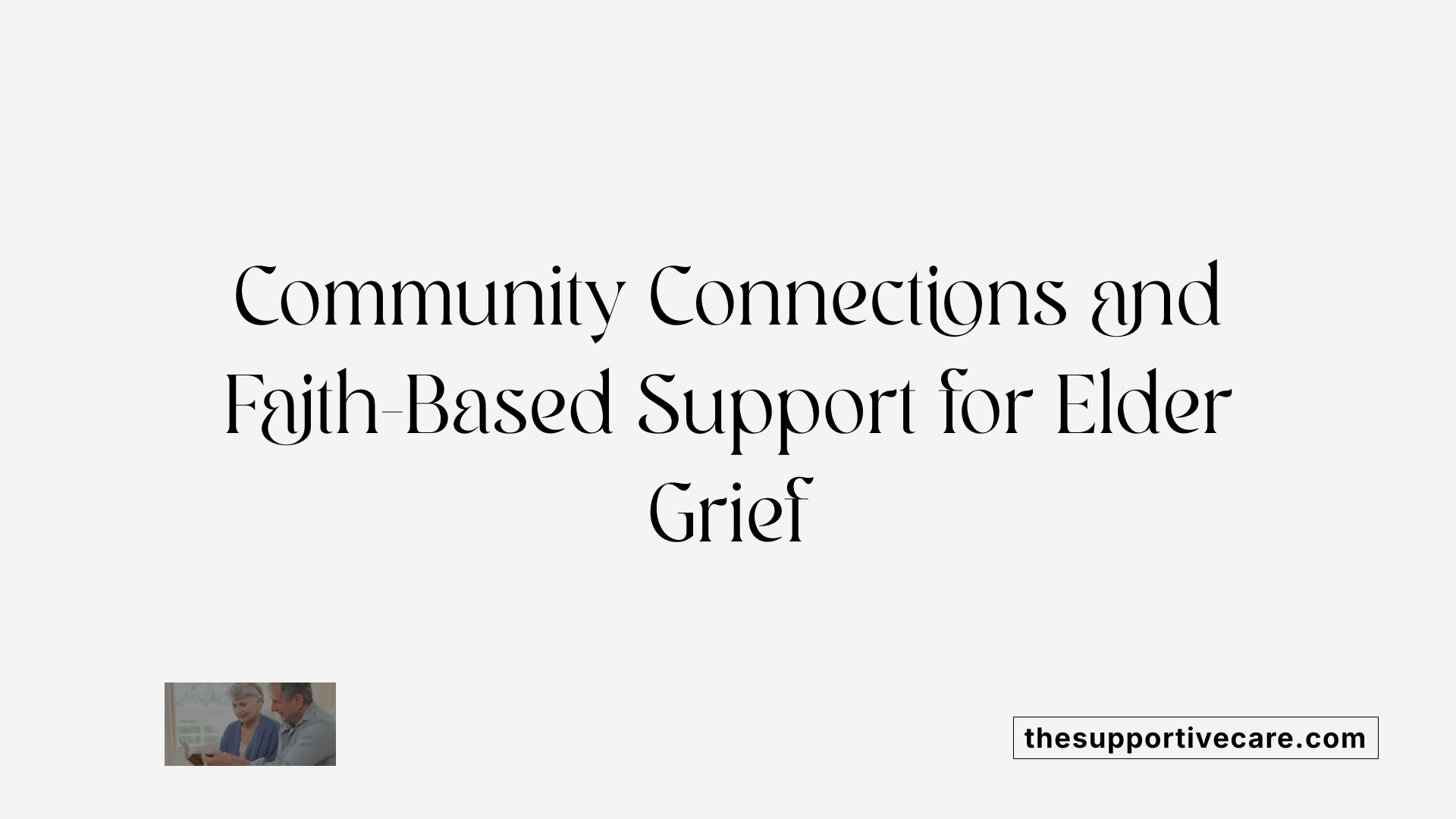
How can family members support a grieving senior loved one after a recent loss?
Supporting a senior through grief involves a combination of emotional, practical, and social support. Family members can start by offering compassionate listening, creating a safe space for the senior to share their feelings, memories, and concerns. Sharing meaningful stories about the loved one who has passed can bring comfort and help maintain a sense of connection.
Practical assistance is equally important. Helping with everyday tasks, such as household chores, managing legal documents, or bills, reduces stress during a difficult time. Accompanying seniors to doctor's appointments, counseling sessions, or support groups like GriefShare ensures they don't feel alone in their healing journey.
Encouraging participation in social and spiritual activities can foster a sense of purpose and belonging. Connecting with faith communities, community centers, or hobby groups offers opportunities for meaningful engagement and reduces feelings of isolation. Facilitating access to grief counseling or therapy can address complex or prolonged grief, promoting emotional well-being.
Building and supporting social connections is vital. Social activities, peer groups, or remembrance events help seniors express their emotions, share experiences, and find mutual comfort. Activities such as volunteering or engaging in hobbies can also provide distraction and joy.
Ultimately, patience, empathy, and consistent support from family foster resilience and aid in the gradual process of healing. Encouraging healthy self-care habits like proper nutrition, exercise, and rest, along with gentle reminders that grief is non-linear, help seniors navigate their emotions at their own pace.
Identifying and Managing Complicated Grief in Seniors
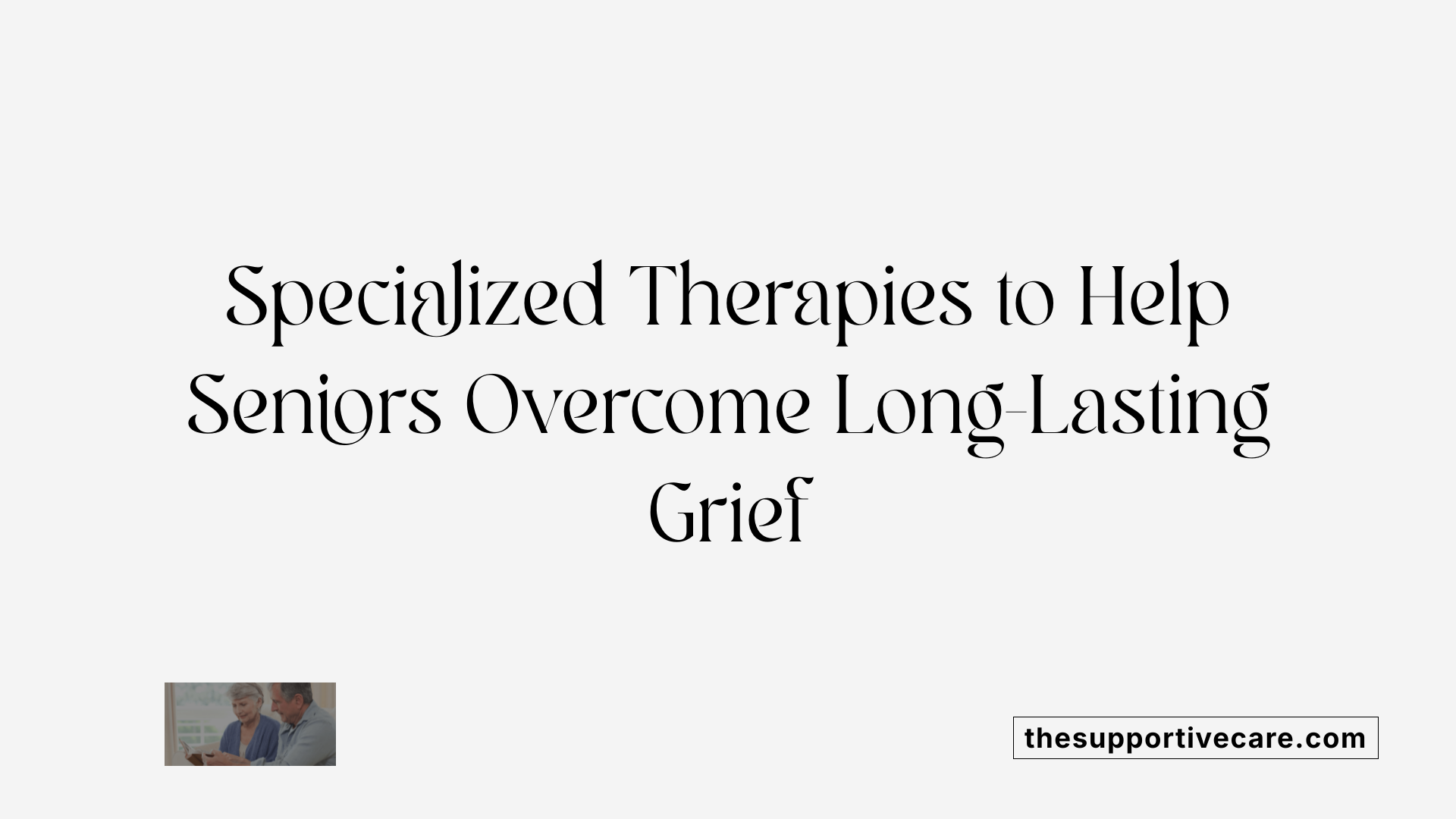
What are the signs of complicated grief in seniors and how can it be managed?
Complicated grief (CG) in seniors often manifests as prolonged and intense mourning that does not diminish over time. Seniors may experience persistent yearning or longing for the deceased, making it difficult for them to accept the reality of their loss. They might also display emotional dysregulation, such as frequent sadness, anger, or feelings of emptiness, which impair daily functioning.
Other signs include avoidance of reminders related to the loved one, feelings of purposelessness, or a loss of identity tied to the relationship. Maladaptive behaviors, such as social withdrawal or substance misuse, can also appear. Recognizing these symptoms early is vital, as CG can significantly interfere with health and well-being.
To support diagnosis, clinicians often employ specific tools like the Inventory of Complicated Grief (ICG). This helps differentiate CG from typical grief or depression, ensuring appropriate treatment.
Managing CG effectively requires specialized therapies. One of the most successful is Complicated Grief Treatment (CGT), a form of psychotherapy tailored to help individuals process their grief, develop adaptive coping strategies, and find renewal. Studies indicate that seniors who undergo CGT often experience higher remission rates and longer-lasting benefits compared to other approaches.
Alongside therapy, it’s important to incorporate ongoing support, stress reduction techniques, and attention to other mental health conditions. Encouraging seniors to participate in community activities, seek social support, and engage in self-care routines can foster healing. Recognizing and treating complicated grief as a distinct condition allows seniors to navigate their grief journey with understanding and compassion, ultimately helping them regain emotional stability and quality of life.
The Role of Community and Personal Rituals in Emotional Healing
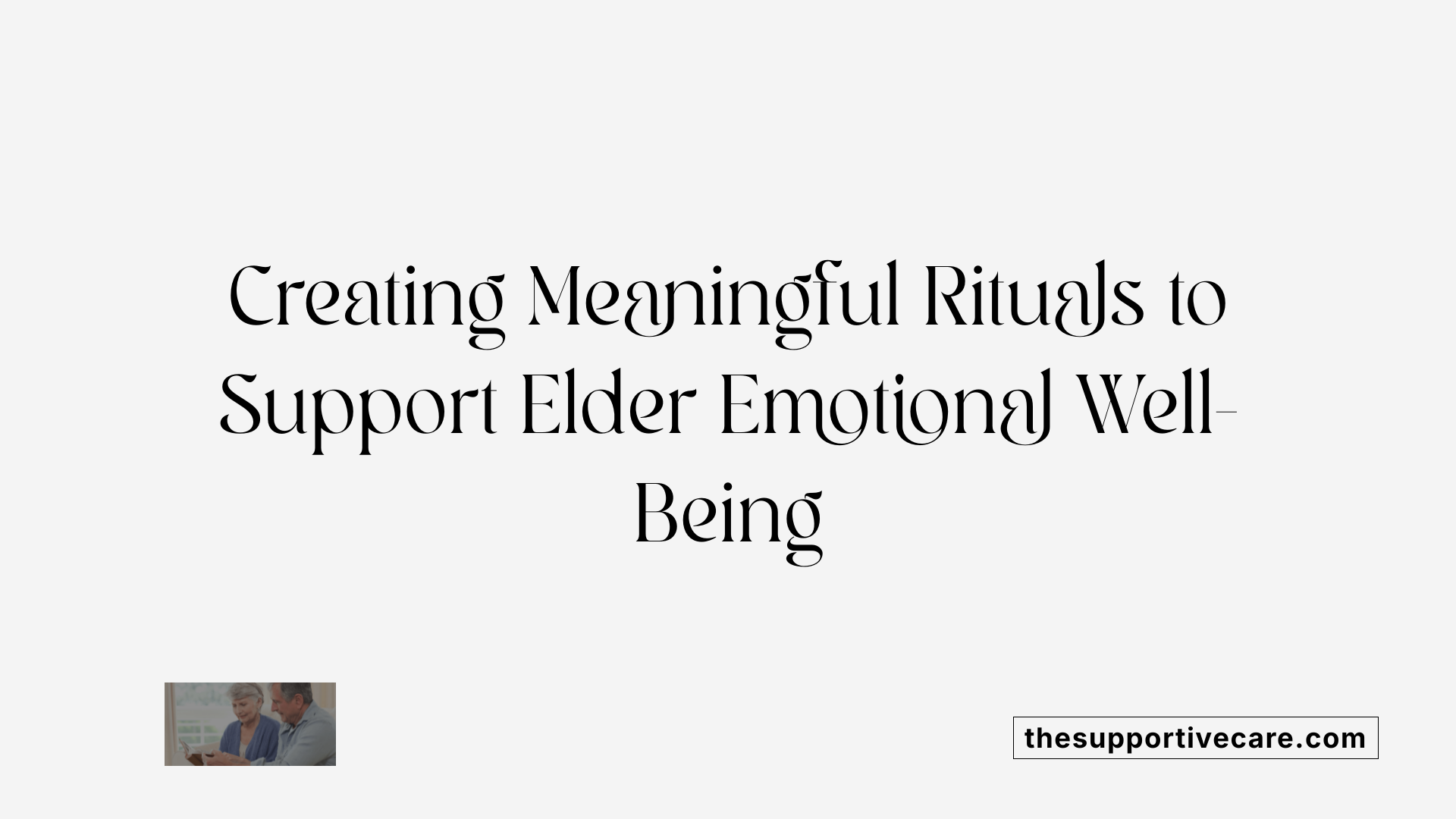
How can remembrance and memorial activities aid seniors in processing grief?
Creating rituals of remembrance, such as visiting the grave or establishing memorials, plays a significant role in helping seniors cope with loss. These activities serve as tangible expressions of ongoing connection with the loved one, offering comfort and emotional closure.
Participating in memorial services, tribute events, or setting up remembrance spaces—whether in community centers, churches, or at home—acts as a solemn act of honoring the deceased. These rituals provide a predictable and safe framework for mourning, which can be especially important for seniors who may feel overwhelmed by their grief.
Engaging in remembrance practices can reinforce cherished memories, making them a vital part of a person’s ongoing life story. They offer an opportunity for family and community members to come together, share stories, and support one another. This collective acknowledgment can alleviate feelings of isolation and validate the emotional significance of the loss.
Through these acts of remembrance, seniors often experience a sense of emotional relief and increased resilience. The rituals create a space for dialogue, reflection, and expression of feelings, helping to transform grief into a process of healing. When these practices are incorporated with compassion and consistency, they become powerful tools that support emotional well-being and foster a sense of peace and acceptance.
Supporting the Journey Towards Healing
Grief in senior communities is a deeply personal and complex process that benefits immensely from comprehensive support systems. Whether through professional counseling, community programs, family involvement, or meaningful rituals, seniors can find paths toward healing and renewed purpose. Understanding the emotional stages of grief, recognizing signs of complicated grief, and leveraging tailored therapeutic approaches are essential components of effective care. As communities and caregivers work together, fostering an environment of compassion, patience, and respect, seniors can navigate their grief journey with dignity and hope. Ultimately, the collective effort to provide emotional, social, and practical support plays a critical role in helping seniors emerge from mourning with resilience and renewed strength.
References
- GriefShare: Need Help Dealing with Grief?
- Coping With Grief and Loss | National Institute on Aging
- Navigating Grief Together as a Community
- Supporting a Senior Loved One After the Loss of a Spouse
- Review of Grief Therapies for Older Adults - PMC
- How a CCRC Helps Residents Grieving the Loss of a Spouse
- Coping with the Loss of a Spouse – 10 Ways Seniors Can ...
- Review of Grief Therapies for Older Adults - PMC
- 10 Grief Counseling Therapy Techniques & Interventions


































































































